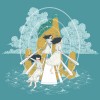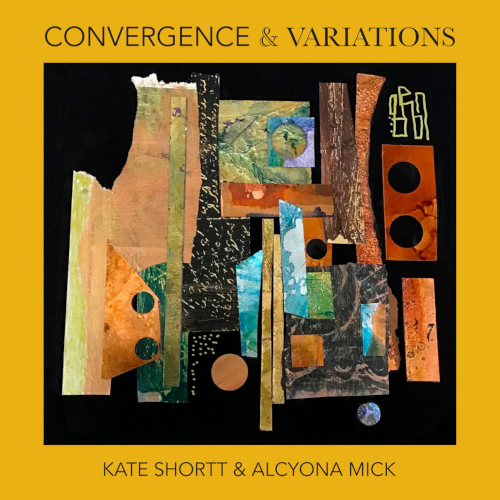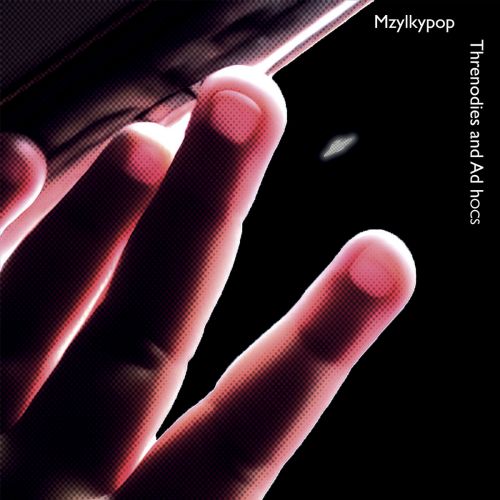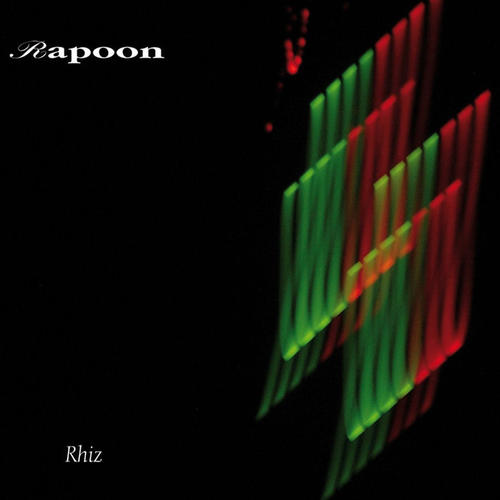 Folk (and folk-influenced) art seems to inherently conjure ideas of both memories and a specific place, like the way that American hillbilly music calls up an image of the smoky green mountains of Tennessee, or the Delta blues recalls swamps, alligators, crossroads and dark deeds. Traditional music, whatever its origins, seems attached to earthy, tactile associations as well as personal memories, if one has attachments to that culture. When people begin to play with the formula, weaving folk music through with bolts of electronics, modern experimental music and other disparate musical rhizomes, the earth shakes, ideas go soft and runny around the edges — the aural equivalent of a psychotropic folk horror film from the early ’70s, with megalithic outcroppings filmed in Kodachrome and Rotoscoped to infernal and mind-melting effect.
Folk (and folk-influenced) art seems to inherently conjure ideas of both memories and a specific place, like the way that American hillbilly music calls up an image of the smoky green mountains of Tennessee, or the Delta blues recalls swamps, alligators, crossroads and dark deeds. Traditional music, whatever its origins, seems attached to earthy, tactile associations as well as personal memories, if one has attachments to that culture. When people begin to play with the formula, weaving folk music through with bolts of electronics, modern experimental music and other disparate musical rhizomes, the earth shakes, ideas go soft and runny around the edges — the aural equivalent of a psychotropic folk horror film from the early ’70s, with megalithic outcroppings filmed in Kodachrome and Rotoscoped to infernal and mind-melting effect.
Minor and Morton are a little of both. They clearly have a love of folk songs and several traditional numbers appear on here, but they manage to avoid the puffy sleeves and general nerdiness of the Renn. Faire, with White Flowers sounding utterly contemporary. They pull this off without resorting to any cheap gimmickry; it’s not like some cheap trap remix of “She Moved Thru The Fair” or anything. They employ some modern technology, although still archaic; a sparse Fender Rhodes electric piano accompanies the fragile vocals on several songs, but that is also mixed with a traditional auto-harp. White Flowers seems to exist in a time of its own, and manages to convey an essence of quintessential Britishness in the process. It’s easy to think of a wistful sailor’s wife on the widow’s walk, watching the sea, on a song like “So It Goes,” perhaps White Flowers‘ most beautiful moment, but this setting dissolves into a ’60s tea room, with Parisian piano serenading cat-eyed women. The hairstyles and corsetry may change, but the same sense of yearning and idyllic passion for the natural world comes across in every note struck.
I’d like to think that the notion of progress in music is grinding to a halt, that everything has to sound completely different from things that have come before, and musicians will be free to weave the universes they want to walk around in and communicate. There are shades of retrofuturists like Stereolab and Broadcast; first-wave British folk revivalists like Pentangle and The Incredible String Band, as well as its more modern offspring freak folk, but it manages to avoid the fruitiness and rosy-eyed retro-worship and caricature that genre was sometimes prey to. And while Lutine may be remixing your conception of Albion, they seem to be splicing musical DNA into beautiful mutations at the same time. “White Flowers” could be an out-take from Antony and the Johnsons‘ sublime I Am A Bird Now, and “So It Goes”‘ vocal trills are an exact replica of “Memories” from Andrew Lloyd Webber‘s Cats. Is this problematic for me? Absolutely not! It just makes me want to listen to Antony, and, if anything, Minor and Morton deserve a medal for managing to make anything Webber-related sound vaguely hip (I’m being slightly sarcastic. I actually really like “Memories,” no matter how typical it is.)Lutine also deserve bonus points for not cluttering up their arrangements with too many flourishes, blemishes or other accoutrements, usually letting one instrument ring out as a setting for their jewelled voices, which are White Flowers’ true highlight and selling point. Heather Minor and Emma Morton seem like they have been singing together since birth, like they could be twins. This kind of chemistry cannot be forced, and is one of the hallmarks of the most accomplished music, in any genre. Listen to Emmylous Harris and Gram Parsons, or Billie Holiday and Lester Young as a reminder of this universal truth.
So come fall through time with Lutine on this stunning debut. Wander through the countryside, past thatched huts on your way to the high street. Kudos to the ever-excellent Front & Follow for another release proving, yet again, that everything they put out is indispensable. And if you dig this record (and you will), you might do well to hunt down records from similar acts Magpahi and Paper Dollhouse for more fine examples of time-bending, spectral Britannia.-J Simpson-



